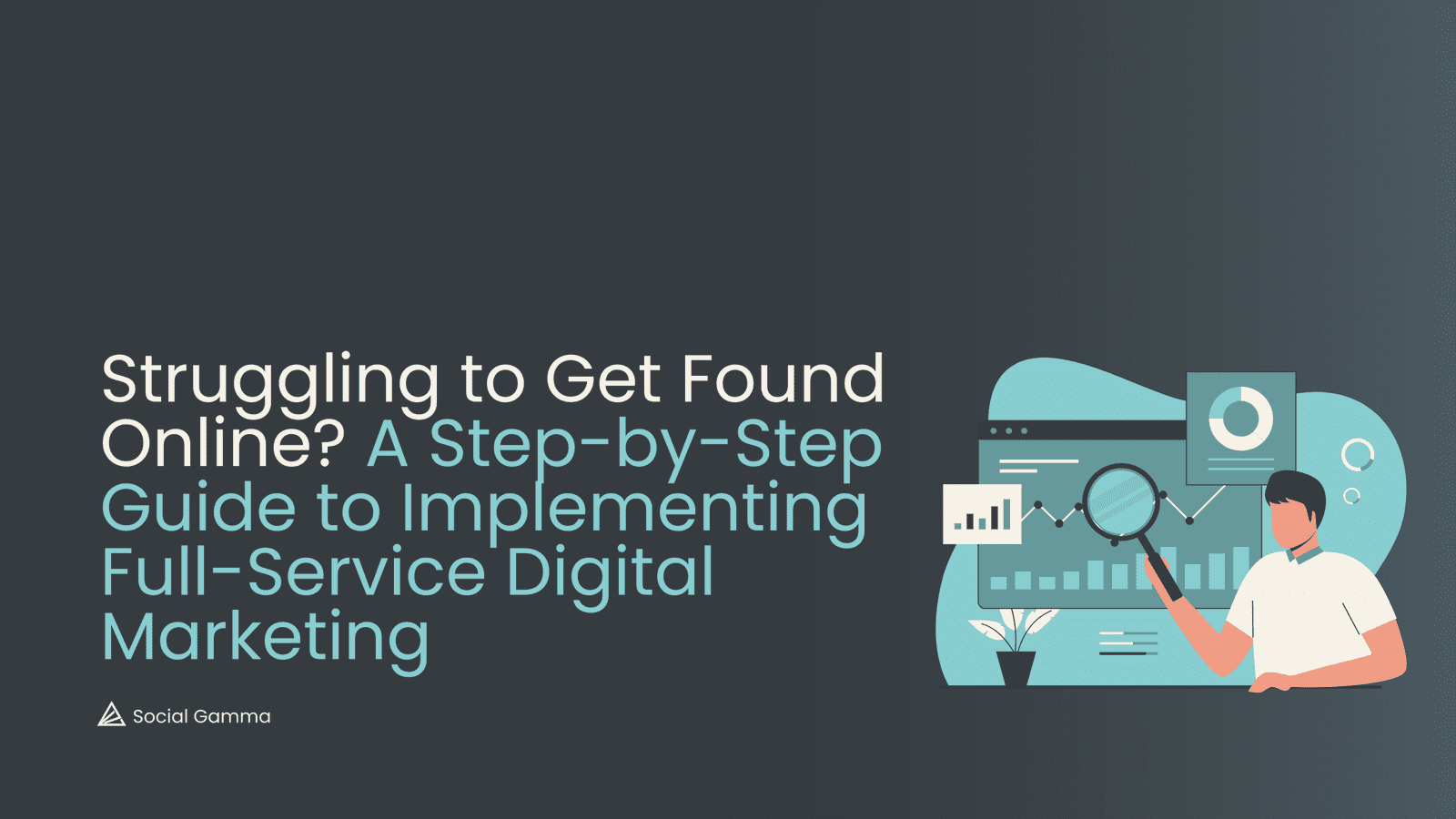For tech brands, navigating the complexities of technical SEO is as crucial as the technology they offer. In an era marked by fierce competition and ever-changing search engine algorithms, the ability to optimise your digital presence is essential.
With the industry’s constant flux and the sophisticated nature of their audience, tech brands face a unique set of challenges in optimising their online presence. The increasing sophistication of search engines, coupled with the nuanced needs of a tech-savvy audience, demands a more refined, strategic approach to SEO. This is where technical SEO, a specialised segment focusing on the optimisation of website infrastructure and architecture, becomes pivotal.
A fitting analogy comes best in the form of a complex puzzle where each piece – from site structure and performance to security and user experience – plays a critical role in how effectively a tech brand resonates with its target audience. They must not only meet the standard benchmarks of Technical SEO but also align them with the rapidly changing technologies and trends specific to their industry. This alignment is essential for enhancing online visibility and for cementing authority and trustworthiness in an industry that thrives on innovation and reliability.
As search engines become more intelligent and user expectations more demanding, the need for an agile, data-driven SEO strategy becomes paramount – it’s about anticipating the future. The change of pace here is relentless and staying ahead in SEO means being prepared for the next big shift.
But these challenges are also an opportunity – an opportunity for tech brands to showcase their expertise, to demonstrate their commitment to excellence not just in their products or services, but in how they present themselves to the world. Effective technical SEO can serve as a testament to a brand’s mastery of technology, both in its offerings and its marketing prowess.
Contents
- 1 Why Do Tech Companies Need SEO?
- 2 Advanced Crawlability and Indexation
- 3 Error Management and SEO Health
- 4 Optimising for Voice Search
- 5 Leveraging AI in SEO Strategies
- 6 Advanced Link Building for Tech Brands
- 7 Continuous Monitoring and Updates
- 8 Advanced Analytics for Informed SEO Decisions
- 9 Addressing Technical SEO in Site Redesigns
- 10 The Role of HTTPS in Technical SEO
- 11 Integrating Social Signals into SEO Strategy
- 12 Leveraging User Experience (UX) for SEO
- 13 Future-Proofing Your SEO Strategy
- 14 Continuous Learning and Adaptation
Why Do Tech Companies Need SEO?
First things first? Why is SEO overall that important for tech brands?
Do you mean aside from the fact that in 2019, companies operating in the B2B sector and those in the technology industry attributed 52.7% and 58.8% of their total revenue to their SEO efforts respectively?
Additionally, B2B companies generate 2X more revenue from organic search than any other channel.
In short, the tech industry, characterised by rapid advancements and fierce competition, demands a strong online presence to ensure visibility in an overcrowded digital space.
SEO empowers tech companies to cut through the noise and reach potential customers actively searching for their unique technologies and services. By optimising their online content for search engines, tech companies can enhance their discoverability, establish authority in their niche, and attract a more targeted audience.
Over 50% of businesses delegate their SEO tasks to an agency. Among startups and small-to-medium businesses, this practice of outsourcing – often seen as the most cost-efficient approach – is even more prevalent.
This is especially vital in an industry where staying ahead competitively is a necessity for survival and growth. Properly executed SEO strategies ensure that tech companies are found, trusted and recognised as leaders in their field, paving the way for sustained business success in an increasingly online world.
Advanced Crawlability and Indexation
Both are essential for a tech brand’s SEO. But why?
First, Google scans a page, followed by indexing it. Only after these steps can the page be ranked for pertinent search queries.
Put simply, if a page isn’t initially crawled and indexed, Google will not rank it. Without rankings, there is no search traffic.
Crawlability and indexation are the bedrock of your website’s visibility on search engines. It’s not just about allowing search engines to crawl your site, but also about guiding them to index the pages that matter most.
An XML sitemap is your roadmap for search engine crawlers, ensuring they find and index all important pages. Meanwhile, the robots.txt file is like a traffic controller, guiding crawlers away from less relevant areas.
For tech brands, where new products and innovations are constantly added, keeping your sitemap updated and your robots.txt file optimised is crucial for ensuring your latest content gets seen.
Error Management and SEO Health
Technical SEO is also about maintaining the health of your website. Regular audits are essential to identify and fix issues like broken links, 404 errors, or redirect chains. In the tech sector, where product lines and services can change rapidly, broken links can be more common.
They not only hinder user experience but also impede search engine crawlers. Implementing a routine check and repair process for these issues is vital to maintaining a healthy, SEO-friendly website.
Optimising for Voice Search
Here’s an interesting fact – 20% of mobile queries are now voice searches.
Voice search optimisation is becoming increasingly important, especially for tech brands targeting their audiences. This involves understanding the more conversational tone and question-based queries used in voice search. Incorporating natural language processing and focusing on long-tail, conversational keywords can help your brand show up in these searches. As voice search devices often provide a single answer, being the top result is more crucial than ever.
Leveraging AI in SEO Strategies
Artificial Intelligence (AI) is revolutionising technical SEO. AI tools can analyse large sets of SEO data to identify patterns and insights that might be missed by human analysis. For tech brands, this means more precise keyword strategies, content optimisation, and user experience enhancements. AI-driven analytics can provide a deeper understanding of how users interact with your site, enabling more personalised and effective SEO strategies.
37% of marketers are already using AI for SEO activities such as mapping longtail keywords and comparing search engine results pages.
Advanced Link Building for Tech Brands
Link building for tech brands requires a strategic approach. It’s not just about quantity but the quality and relevance of backlinks.
There are many reasons as to why your site may not be ranking well on SERPs in relation to backlinks:
- First and foremost, the page may not have any backlinks.
- The page topic might not have high traffic potential.
- The page info and search intent do not match.
- The page isn’t indexed (unindexed pages cannot be ranked)
Guest blogging on reputable tech sites, creating shareable content, and leveraging industry partnerships can help in building a robust backlink profile.
Remember, backlinks from high-authority tech sites are like endorsements, boosting your site’s credibility and search ranking.
Continuous Monitoring and Updates
The digital landscape is ever-changing, and so are SEO best practices. Continuous monitoring and regular updates to your SEO strategy are crucial. Use tools like Google Analytics and Search Console to track performance and stay updated with the latest SEO trends and algorithm updates. For tech brands, being agile and responsive in your SEO strategy is key to staying ahead in a competitive digital space.
Advanced Analytics for Informed SEO Decisions
For tech brands, leveraging advanced analytics means utilising much more than basic traffic and keyword ranking analysis. It involves deep dives into user behaviour, site interactions, and conversion paths.
Utilising tools like Google Analytics, SEMrush, or Ahrefs, you can gather insights into how users interact with your site, what content performs best, and where you might be losing potential leads. This data-driven approach allows for informed decisions, ensuring that your SEO efforts are not just a shot in the dark but a strategic endeavour.
Addressing Technical SEO in Site Redesigns
Tech brands often undergo website redesigns to stay current and relevant. In these phases, technical SEO should be a priority, not an afterthought. It’s essential to ensure that new designs are not just aesthetically pleasing but also search-engine friendly. This means maintaining clean code, ensuring fast load times, and preserving your SEO equity through proper redirects and URL structures. Remember, a site redesign is an opportunity to enhance your SEO, not diminish it.
Unsurprisingly, 88% of consumers are inclined not to revisit a website following a poor user experience.
The Role of HTTPS in Technical SEO
Security is a crucial aspect of technical SEO, particularly for tech brands where trust is paramount. Ensuring your site uses HTTPS with a valid SSL certificate is a must. Google has confirmed HTTPS as a ranking signal, and users are more likely to trust and engage with secure sites. This is especially important if your site handles sensitive user data or transactions.
Integrating Social Signals into SEO Strategy
While social signals are not direct ranking factors, their indirect effects on SEO are undeniable, especially for tech brands. Active social media engagement can drive traffic to your website, increase brand visibility, and contribute to your site’s authority. Integrating your social media strategy with your SEO efforts can create a synergistic effect, bolstering your overall digital presence.
Leveraging User Experience (UX) for SEO
In technical SEO, user experience (UX) plays a critical role. For tech brands, your website’s UX should mirror the innovation and sophistication of your products or services. This means having a user-friendly interface, intuitive navigation, and engaging content. Enhancing UX not only improves user engagement but also positively impacts SEO, as search engines favour sites that provide a good user experience.
Future-Proofing Your SEO Strategy
The tech industry is ever-evolving, and so are SEO practices. Future-proofing your SEO strategy involves staying ahead of trends, continuously learning, and being ready to adapt to new search engine algorithms and technologies. For tech brands, this might mean exploring emerging fields like AI, AR/VR, and voice search optimisation, ensuring that your brand remains at the forefront of SEO innovation.
Continuous Learning and Adaptation
Finally, the key to successful technical SEO in the tech industry is continuous learning and adaptation. Regularly updating your skills, staying on top of the latest SEO trends and updates, and being willing to experiment and adapt are essential. Follow SEO thought leaders, and participate within online tech and marketing communities to keep your SEO knowledge up-to-date.
In summary, technical SEO for tech brands is an intricate blend of data analytics, site architecture, security, social media integration, user experience, and forward-thinking strategies. By focusing on these areas, tech brands can not only improve their search engine visibility but also offer a superior online experience to their users, ultimately driving growth and success in the competitive digital marketplace.
About us
At Social Gamma, our digital marketing solutions merge empowerment and expertise, driven by meticulous analysis and unrivalled insights that breathe life into your aspirations.
We embrace the art and science of digital marketing, combining data-driven strategies with human insights to create impactful campaigns that leave a lasting impression.
We’re big enough to achieve, but small enough to care.
Do you want to know more?
If you found this article interesting and useful, follow us on our social media channels to stay updated with our weekly digital marketing insights.
If you want to learn more about our services then contact us


